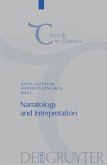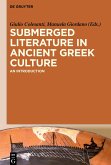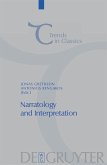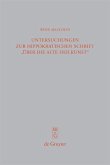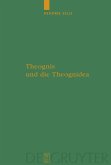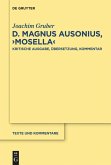In Late Antiquity, and above all in the fourth century, far-reaching changes took place in the political, social and religious environments. The pagan authors of the Roman East (the Emperor Julian, Libanius, Eunapius, Themistius) experienced this process as a threatening crisis, and reacted with the pen. This study considers important contemporary themes such as the construction of identity, ideal rule or the correct interpretation of current reality, so providing the first exposition of the specific character of these writings.
Die Spätantike, insbesondere das vierte Jahrhundert, ist eine Zeit der Transformationen, in der sich auf politischem, sozialem und religiösem Gebiet tiefgreifende Wandlungen vollzogen. Die paganen Autoren des römischen Ostens (vor allem Kaiser Julian, Libanios, Eunap und Themistios) nahmen diese Prozesse als bedrohliche Krise wahr, nicht zuletzt die vom anwachsenden Christentum ausgehende Gefahr für ihre eigene Position. Resignierten sie in dieser Situation oder versuchten sie, mit diskursiven Mitteln Lösungen für die drängenden Probleme zu finden? Dieser Frage geht Jan Stenger nach, indem er wichtige Themen dieser Epoche wie die Konstruktion von Identität, die ideale Herrschaft und die Deutung der zeitgenössischen Realität untersucht. Als gemeinsame Charakteristika dieser Literatur erweisen sich die Formung eines hellenischen Selbstverständnisses, ein durch die Herausforderungen bewirktes höheres Reflexionsniveau sowie inhaltliche und formale Innovationen. Diese Merkmale erlauben es, erstmals die Spezifik der paganen Literatur im vierten Jahrhundert nachzuzeichnen.
Die Spätantike, insbesondere das vierte Jahrhundert, ist eine Zeit der Transformationen, in der sich auf politischem, sozialem und religiösem Gebiet tiefgreifende Wandlungen vollzogen. Die paganen Autoren des römischen Ostens (vor allem Kaiser Julian, Libanios, Eunap und Themistios) nahmen diese Prozesse als bedrohliche Krise wahr, nicht zuletzt die vom anwachsenden Christentum ausgehende Gefahr für ihre eigene Position. Resignierten sie in dieser Situation oder versuchten sie, mit diskursiven Mitteln Lösungen für die drängenden Probleme zu finden? Dieser Frage geht Jan Stenger nach, indem er wichtige Themen dieser Epoche wie die Konstruktion von Identität, die ideale Herrschaft und die Deutung der zeitgenössischen Realität untersucht. Als gemeinsame Charakteristika dieser Literatur erweisen sich die Formung eines hellenischen Selbstverständnisses, ein durch die Herausforderungen bewirktes höheres Reflexionsniveau sowie inhaltliche und formale Innovationen. Diese Merkmale erlauben es, erstmals die Spezifik der paganen Literatur im vierten Jahrhundert nachzuzeichnen.
"In sum, Stenger's book can motivate a critical re-reading of its sources through the new lens of its ambitious approach. It is a thought-provoking contribution that certainly merits careful study and no doubt will incite further critical consideration and discussion."
Fabian Sieber in: BMCR 2010.10.16
Fabian Sieber in: BMCR 2010.10.16


